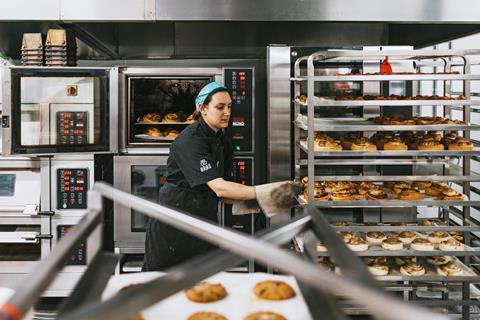
The Welsh Government has increased its funding of baking apprenticeships and revamped the framework to help ease the bakery skills shortage in Wales.
Details on these recent developments were highlighted to attendees of the Welsh Baking Conference 2024 in a presentation from Terry Fennell, chief executive of FDQ which is a specialist awarding organisation for food & drink qualifications and apprenticeships.
Fennell revealed that the Welsh Government has now assigned a funding value of £7,560 to the FDQ’s Level 3 Diploma for Proficiency in Advanced Baking Industry Skills, which marks a 78% increase in the past 12 months. In addition, a funding value of £6,311 has been assigned to the Level 2 apprenticeship, a 72% improvement since a year ago.
Having long been known to lag behind the funding available to apprentice bakers in England, the rates in Wales have now been equalised, noted Fennell. “I think it’s something that is much needed in Wales, and over the next year or two we really do hope to galvanise the sector and bring that apprenticeship ethic back into the public domain,” he expressed.
According to market analysis from Food & Drink Wales, the Welsh bakery sector employs more than 5,400 people and generates a total turnover of around £682m (of which £582m is retail sales). Baking represents almost a third (32%) of all manufacturing business units in the country.
Despite these relatively high figures, the Welsh baking industry saw less than 20 apprentices start a programme during the 2022/23 academic year – this isn’t even enough to accomodate demand from Jones Village Bakery in Wrexham, which recently launched a search for a score of new apprentices.
“For a bakery sector that’s so big and so varied, that’s quite worrying,” said Fennell, noting that the number of new apprentices starting in Northern Ireland was four or five times higher. “We have some excellent training providers in Wales, we just don’t have one in every town and city,” he added.

Low awareness of apprenticeships and their benefits among businesses and prospective candidates, low funding and training provisions, inflexible delivery, and questionable return on investment were some of the examples cited for the poor figures in Wales.
Fennell, who has around 30 years in the field of apprenticeships, warned that the offer was quite complicated. “We’ve got to get employers onside, we’ve got to get students onside, we’ve got to get industry onside,” he said.
However, he presented several reasons why apprenticeships are a good investment idea for businesses. “Bakery apprentices tend to stay with a company longer because they feel invested in when given time off for skills training and widening their knowledge base. This in turn saves money on recruitment,” he commented.
“Good motivation is one of the characteristics that can spread to other colleagues. A retained, well trained, and productive workforce is another key benefit of hiring apprentices.”
Fennell noted Level 2 was an intermediate starting point, suitable for bakery trainees who haven’t yet attained an accredited qualification. “Some programmes are primarily on-the-job, while some are on and off. It really depends how your business would like to work,” he said.
A group comprised of employers and other stakeholders have helped revamp the framework and the qualifications. Apprentices will now learn to be proficient in bakery production, laying out products on shelves for consumption, food safety and hygiene measures, and other knowledge and skills useful within a business.
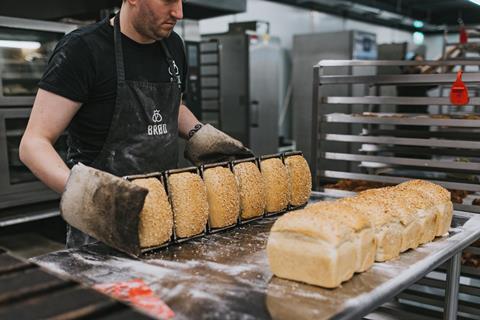
With a Level 2 Diploma certificate in hand, which Fennell reminded was quality assured and internationally recognised, many apprentices move on to Level 3 to expand their roles and responsibilities, including into management.
“It’s got a bit of everything in there, it’s got a bit of science, a bit of knowledge, a bit of competent skills – it will set you in in good stead for a career,” asserted Fennell, noting that it takes about 12 to 18 months on average to complete Level 3.
While programmes in Wales have their own distinct approach to learning, apprentices will still be considered as having achieved the same level as those from the other three nations in the UK. A new Level 3 Lead Baker Trailblazer Apprenticeship Scheme was approved last August, which FDQ subsequently rolled out for the English market.
A fulfilling and lifelong career
The second annual Welsh Baking Conference was organised by Zero2Five Food Industry Centre and held at Cardiff Metropolitan University on 13 March, with over 130 baking industry members coming together to discuss and learn about key issues facing the sector.
Joining Fennell on stage for the presentation, entitled ‘Investing in Future Bakers: Education and Support’, was technical baking consultant Sara Autton, who received the Outstanding Contribution to the Baking Industry Award 2023.
“By planting these early seeds, we’re seeking to reap a good harvest of skills and enthusiastic, innovative bakers of the future”
Autton gave an impassioned talk about her past experiences and studies in her “dream job” of baking, which included her being the only female worker at a bakery in 1974, graduating with a diploma from the National Bakery School at London’s South Bank University in 1980, and returning to take a degree in baking 16 years later.
Having now “retired from the nine to five”, she serves in the executive council of the Alliance for Bakery Students and Trainees (ABST), a not-for-profit organisation run by volunteers from industry and education which supports anybody who is undertaking a recognised and accredited bakery qualification. This is backed by “very generous sponsorship” from industry partners, noted Autton.
“We seek to enhance the students’ or trainees’ education experience with industry visits, seminars, and workshops, culminating in our famous annual conference that takes place at Alton Towers,” she added.
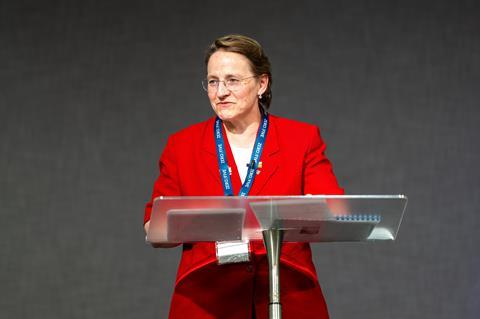
Autton is also a liveryman of the Worshipful Company of Bakers, where she is chair of the Trade Liaison Committee. As the second oldest guild in London with a history dating back over 800 years, it is now mainly focussed on supporting education.
“We are showcasing bakery skills and opportunities, not just putting flour and yeast and salt into a mixer and making bread or making a cake or biscuits or whatever, but all of the other essential roles to the baking industry – logistics, accountancy, ingredients, technology. All of these other things that are so vital to making the whole thing work,” commented Autton.
“By planting these early seeds, we’re seeking to reap a good harvest of skills and enthusiastic, innovative bakers of the future. We’ll be ready to take on the very real challenges of feeding and growing the world’s population. The bedrock of all of this is well structured and accessible qualifications that are flexible enough to match and meet those challenges.”




















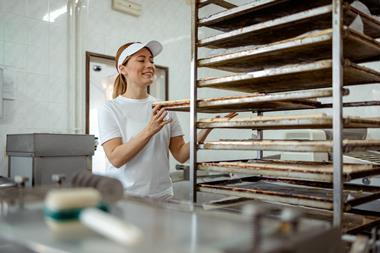

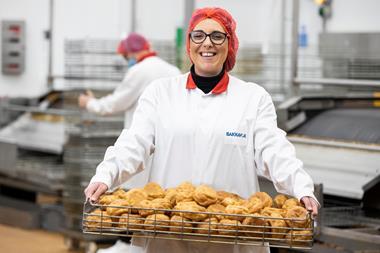

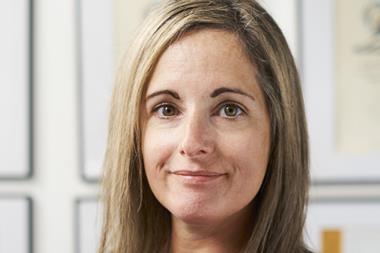
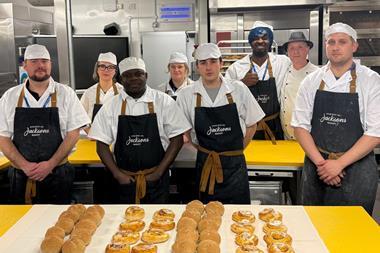


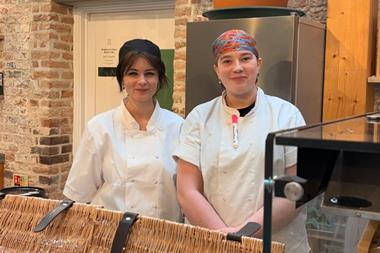
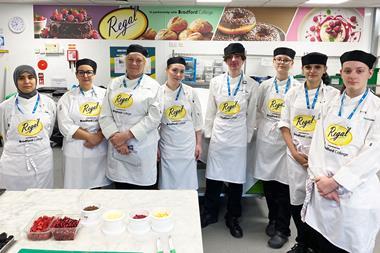


No comments yet